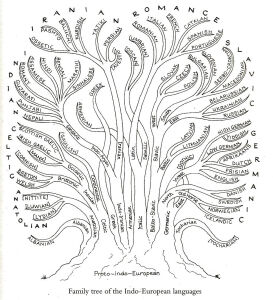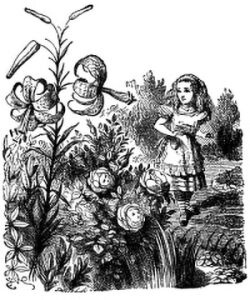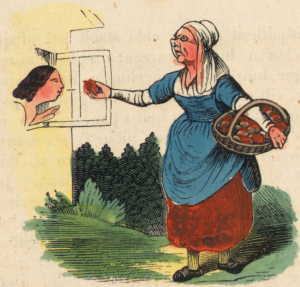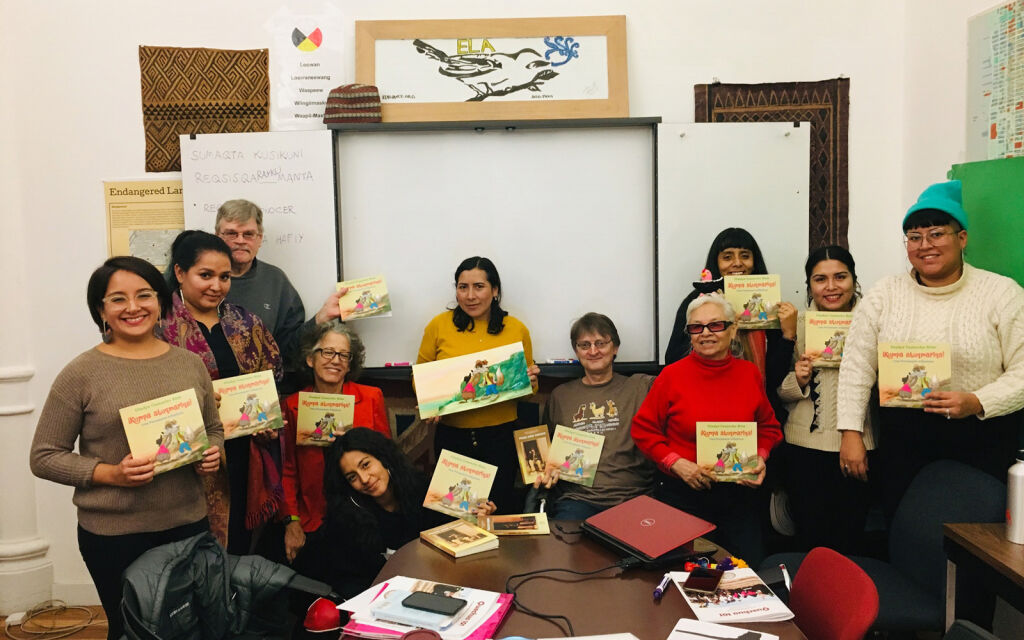“False Friends”: The Words to Watch Out For

The Indo-European Language Family Tree.
EnriBrahimaj, CC BY-SA 4.0, via Wikimedia Commons
When learning to speak a new language, every learner dreads the same thing: the moment of paralyzing fear that washes over you in conversation when you mean one thing but say something VERY different. Learning a language can, at times, be a challenging process. It is difficult to navigate the unfamiliar rules and regulations that govern a foreign language.
Most of the languages spoken today belong to language families, or groups of similar languages with shared origins. For example, Romance languages (like French, Spanish, and Romanian) are generally understood to have developed over time from a version of Latin. Similarly, modern Germanic languages (like English, Dutch, and Icelandic) developed from a much older Germanic language. Both of these language groups themselves belong to the much larger Indo-European language family. The more closely related the languages are, the more likely they are to overlap in the words and grammar used. Cognates, or words in two or more languages with similar origins, often result from this overlap. Good examples of cognates in Indo-European languages are “night” (English), “Nacht” (German), “noche” (Spanish), “notte” (Italian), ночь (noch; Russian), and “natt” (Norwegian), among many others. See how they sound similar?
But be warned, words in unrelated languages can sound similar too. What may sound like language overlap can instead be a total coincidence. False cognates, otherwise known as “false friends,” occur when a word sounds like a word in another language but has an entirely different meaning. Enjoy a sampling of some of our favorite false cognates that might make a native English speaker do a double take.
1. Kisse — Swedish
To the native English-speaking ear, this word could be mistaken for a sweet sign of affection. In Swedish however, the word “kisse” actually means “cat.” It is theorized that “kisse” comes from the noise one makes when trying to get a cat’s attention: “kis-kis-kis.” Conflating these two “false friends” might result in quite the misunderstanding!

“The Kiss”? More like, “The Kisse”!
2. Bigote — Spanish
Before you ask, no, this is not the Spanish word for biased and discriminatory behavior. “Bigote” instead means “mustache”! “Bigote” is likely derived from the German “bei Got,” meaning “by God,” in reference to a gesture made by Germanic mercenaries as part of an oath. So, we “mustache” you, did you guess this word’s meaning correctly?
3. फूल (phūl) — Hindi
The aerated “ph” sound, in some dialects, mimics the sound of the English “F,” making this Hindi word sound like the English word “fool.” However, फूल (phūl) means “flower” and originates from “púṣpa” (पुष्प) meaning “bloom or blossom” in its parental language, Sanskrit.

“‘It’s my opinion that you never think at all,’ the Rose said in a rather severe tone.”
4. دين (dīn) — Arabic
This Arabic word, if overheard by an English speaker, sounds like the word for the head of a school district or university. دين (dīn) instead means “religion” in Arabic and can also be used to describe a “loan or credit.” This Arabic word appears in the Quran 98 times and is derived from the Proto-Semitic word for “judgment, decisions of morality.”
5. Gift — German
Accepting a gift in Germany? Be extra wary of this “false friend,” as “Gift” actually means “poison” in German! The real German word for “gift” is “Geschenk.” This is a mistake that a new language learner can only make once. Nina, the German language ambassador in our Spoken World gallery, teaches visitors a number of others “false friends” between German and English.

“Snow-White put her head out of the window, and said, ‘I dare not let any one in, for the dwarfs have told me not to.’ ‘Do as you please,’ said the old woman, ‘but at any rate take this pretty apple; I will make you a present of it.’”
These are just a few of the many “false friends” out there, but this phenomenon is not exclusive to the English language. Another classic false cognate pair is the Spanish word for “donkey” and the Italian word for “butter” — “burro.” While both words sound the same and derive from Latin words, they are not related. The Spanish word derives from Latin “burricus” (meaning “small horse”). These small horses have a red-brown color that is commonly referred to as, “burrus.” In turn, the Italian word originally comes from the Latin word “būtȳrum” (also meaning “butter”) through the Old French “burre.”
There is a lot of history buried in the words each of the words that we use today, even when they do not sound special to the untrained ear. We encourage you to explore word etymologies and find more “false friends.” And remember, making mistakes when practicing in your non-native tongue is a natural part of the language-acquisition process!



